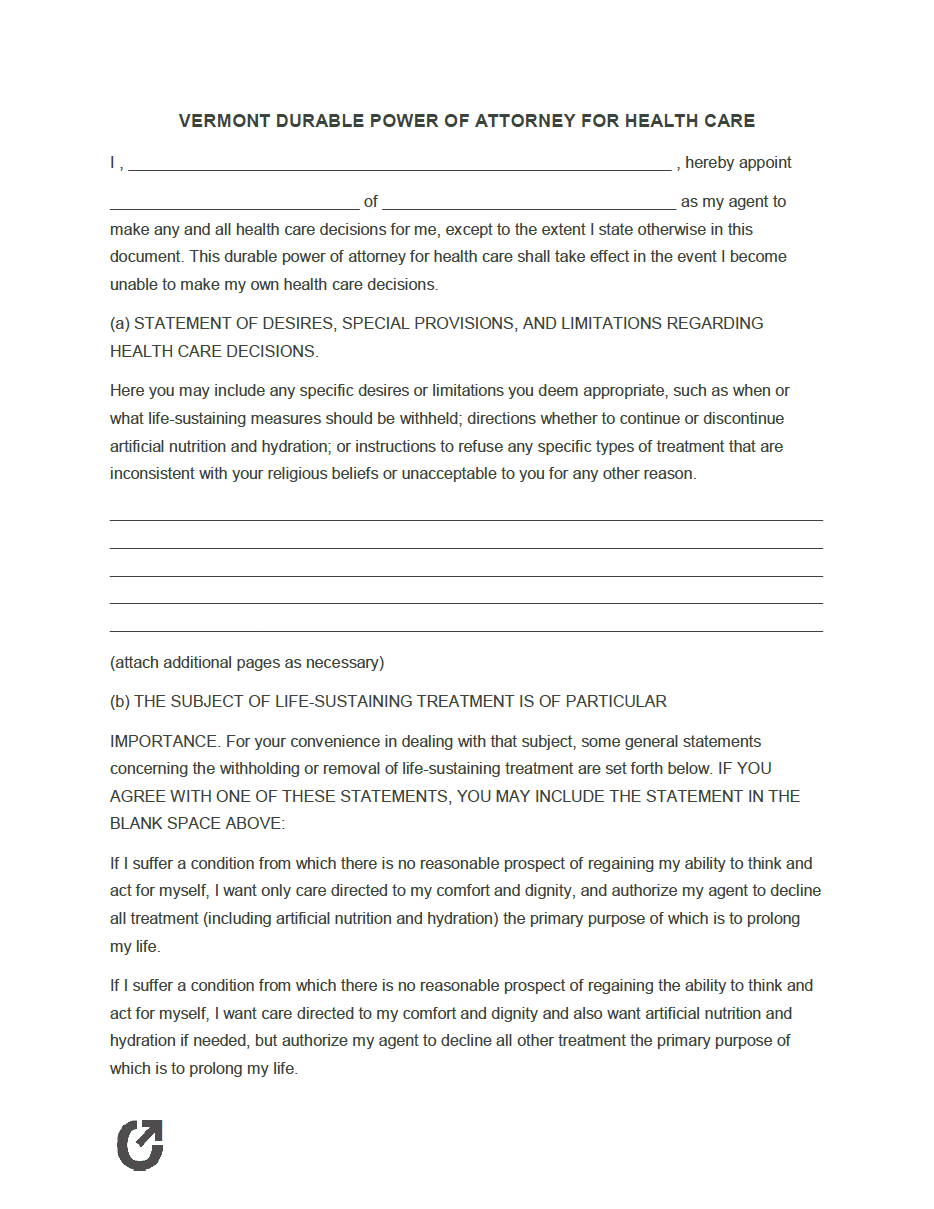Vermont Medical Power of Attorney Form
A Vermont medical power of attorney gives a person (the agent) authority to make medical decisions for the creator of this document (the principal). The agent only has this ability if the principal cannot communicate their wishes. This state of mind, also known as incapacitation, results from traumatic injury, terminal illness, or any other disability that takes away a principal’s speaking ability.
The principal can use this document to inform the agent and/or physician of their health care preferences. For example, they can include whether or not they want life-sustaining treatment, artificial nutrition or hydration, surgery, medication, or any other type of care. They should provide information about religious, spiritual, or cultural beliefs (if they have any). By taking on this role, the agent agrees to follow the requests as written in this document. If the principal has not provided details about treatment or care, the agent must make the best decision possible on their behalf.
Using this form, the principal can allow the agent to make their after-life decisions. For example, the agent can have the responsibility of handling the principal’s funeral arrangements. This process includes choosing the location of services, notifying the public of the principal’s death, and picking out flowers. The agent must decide whether or not to gift the principal’s organs and/or tissue to education, research, therapy, or transplantation. If they do not gift the principal’s body, they must choose how to dispose of it (i.e., cremation, burial, freezing, etc.).
A third party must read and explain the advance directive to a principal who plans to live or currently resides in a nursing home or residential facility. After providing the principal with an explanation of the form, they must also sign it (§ 9703(d)). This person must be considered one of the following:
- An ombudsman;
- A clergy member;
- A Vermont-licensed attorney;
- An individual appointed by the Probate Division of the Superior Court or by a hospital;
- A mental health patient representative;
- An unpaid volunteer at the nursing home or residential care facility who can explain the purpose of the medical power of attorney; or
- A clinician (who is not currently employed by the nursing home or residential care facility).
Laws: § 18-231
Signing requirements (§ 9703): Must be signed by the principal (or an elected representative) in the presence of at least two (2) witnesses (who must also sign).
